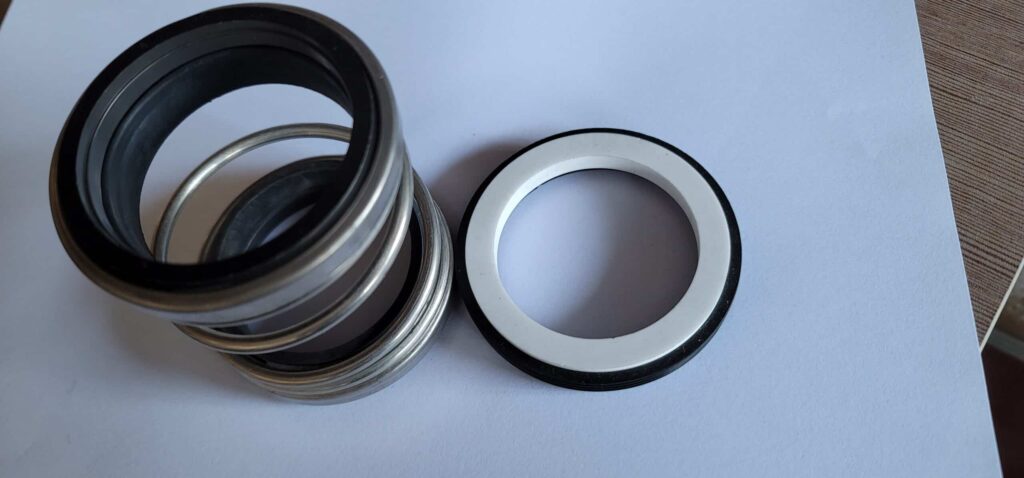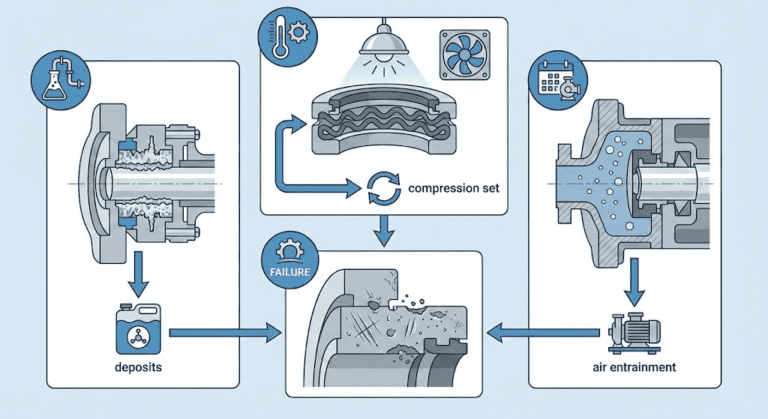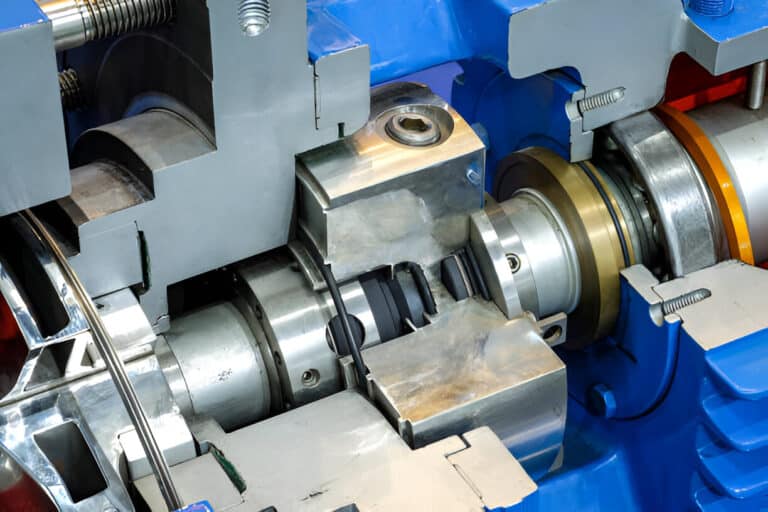Are you wondering about the differences between carbon and ceramic mechanical seals? In this blog post, we’ll explore the key distinctions between these two types of seals.
We’ll discuss their unique properties, applications, and benefits. By the end, you’ll have a clear understanding of which seal is best suited for your specific needs.

Composition and Properties
Carbon seals are made from graphite, while ceramic seals are typically composed of alumina or silicon carbide.
Carbon seals are known for their self-lubricating properties and excellent compatibility with various media. Ceramic seals offer superior hardness, wear resistance, and chemical inertness.
Temperature and Pressure Tolerance
Ceramic seals generally have a higher temperature tolerance compared to carbon seals. They can withstand temperatures up to 1,000°C, making them suitable for high-temperature applications.
Carbon seals have a lower temperature limit, typically around 400°C. However, they are capable of handling higher pressure than ceramic seals.
Wear Resistance and Durability
Ceramic seals exhibit excellent wear resistance due to their high hardness. They are less prone to abrasive wear and have a longer lifespan in applications with abrasive media.
Carbon seals, while not as hard as ceramic seals, offer good wear resistance and durability. They are well-suited for applications with moderate abrasive conditions.
Chemical Compatibility
Ceramic seals are chemically inert and resistant to most corrosive media. They are ideal for handling aggressive chemicals and acids without degradation.
Carbon seals have good chemical compatibility with many fluids but may not be suitable for certain highly corrosive or oxidizing environments.
Cost and Availability
Carbon seals are generally more cost-effective compared to ceramic seals. They are widely available and can be manufactured with shorter lead times.
Ceramic seals, due to their specialized properties and manufacturing process, tend to be more expensive than carbon seals. They may also have longer lead times for production.
In conclusion
Carbon and ceramic mechanical seals each have unique properties suited for different applications. Consider factors such as temperature, pressure, and media compatibility when selecting the appropriate seal material.
For expert guidance on choosing the right mechanical seal for your specific needs, contact our knowledgeable team today.



